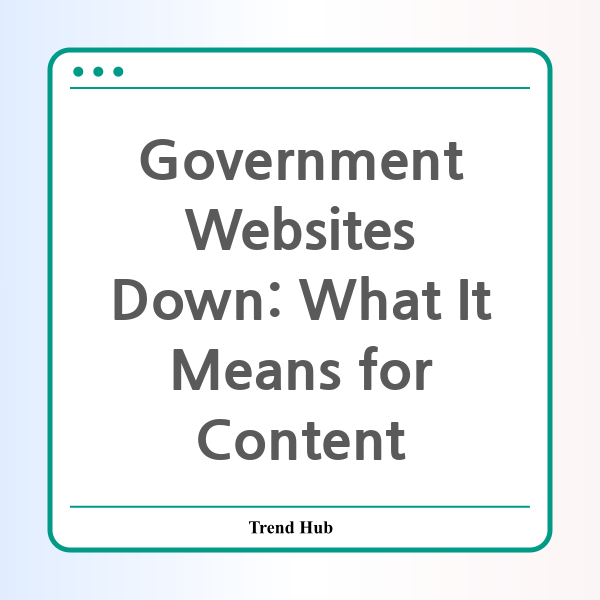* This website participates in the Amazon Affiliate Program and earns from qualifying purchases.

On January 31, 2023, an unexpected move sent shockwaves through the digital landscape of federal government communication. The Trump administration opted to pause most federal government websites, prompting questions about accessibility and the future of government communication online. As of 5 p.m. ET, users began to notice the unavailability of several sites, including the U.S. Census website. The abrupt action has raised concerns and debates regarding transparency and accountability in government communication.
This decision is reported to be rooted in an effort to eliminate content associated with Diversity, Equity, and Inclusion (DEI) and other language perceived to be anti-Trump. Amidst the political landscape's turbulence, many are left wondering what this means for the accessibility of vital information and resources provided by government agencies.
In recent communications, officials indicated a desire to scrub various online platforms of content that contradicts the current administration's message. This included directives to remove references to climate change from agency websites, as well as content relating to gender equity. The implications of such a move extend far beyond mere text edits on webpages; they touch on critical aspects of how government relates to its citizens.
As the Trump administration engages in this significant overhaul of government communication, multiple questions arise:
- What will happen to ongoing federal programs? Many health programs that were designed to combat equity gaps, particularly those affecting marginalized communities, may be at risk. The feasibility of removing critical information—especially that which addresses public health concerns—poses a serious challenge for agencies tasked with safeguarding community health.
- How will this affect public trust? Transparency is a cornerstone of democratic governance. The decision to go dark on websites under the guise of content curation risks eroding public trust in governmental institutions, particularly among those who rely heavily on these resources for information.
- What are the legal and ethical ramifications? The assessment of ethical governance hinges on the ability of agencies to communicate freely and openly. By restricting access to diverse viewpoints and discarding proven scientific data, the administration may open itself to legal challenges based on censorship and obstruction of information.
From the perspective of accessibility, the idea of federal websites going dark could hinder access to crucial resources needed by everyday citizens. For example, the Census website plays an integral role in providing demographic data essential for local planning and resource distribution. The lack of this information affects not just researchers and policymakers, but also the communities relying on that data for funding and services.
Government websites traditionally serve as gateways to national policies, statistics, and essential services. The transition into a more controlled digital communication environment raises questions about who decides what information deserves visibility and what demographic voices may be silenced as a result.
In summary, the decision to pause federal government websites and eliminate certain content forms a part of a broader strategy that prioritizes political messaging over transparency. As this situation develops, citizens, advocates, and policy makers alike will need to remain vigilant in monitoring changes that may affect the integrity of governmental communication. Ultimately, the long-term effects of these actions on federal accessibility and citizen engagement are still unfolding and warrant careful scrutiny.
* This website participates in the Amazon Affiliate Program and earns from qualifying purchases.